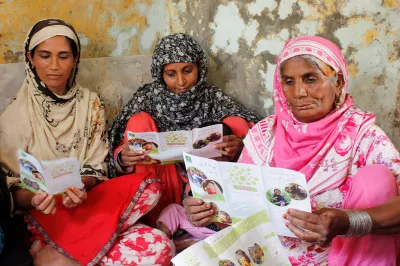Pakistan: Branchless Banking’s Business Model Laboratory
Over the past several months, we have taken a close look at the branchless banking industry in a few key countries. We have presented our learning from Brazil, Mexico and India over the last few weeks. Today we continue with our analysis of Pakistan and share this summary note on the branchless banking industry.
Pakistan might not be the first country that springs to mind as fertile ground for branchless banking. The country is certainly facing enormous challenges: from the fragile state of the economy to the rise of religious extremists. Pakistan has one of the lowest proportions of the population who are financially included of all the countries that we are featuring in this series with just 12% having access to formal financial services. But the huge numbers of people who are not currently being served represent a huge opportunity for branchless banking providers. Pakistan also benefits from a very competitive mobile telecommunications sector with low average-revenue-per-user (ARPU) and players hungry to look for additional revenue sources.
Pakistan’s branchless banking story started back in April 2008, when the Central Bank issued specific regulation on branchless banking which laid out the rules clearly: low value accounts with reduced KYC requirements were introduced, but only regulated banks would be allowed to hold the accounts and sign agreements with networks of agents to service these customers. Some 18 months after the regulation was passed the first branchless banking service was launched. Six months later their first competitor entered the market and several others have advanced plans to launch services during 2011.
So, who are the runners and riders in Pakistan’s branchless banking race and what makes them interesting?
- Mobile operator Telenor, bought a controlling stake in Tameer Microfinance Bank through which they launched http://easypaisa.com.pk/EasyPaisa – Pakistan’s first branchless banking service – in October 2009. The service has now processed over 10 million transactions, mostly bill payments and domestic remittances, through its network of over 10,000 agents.
- Second to launch was one of Pakistan’s largest commercial banks: UBL. UBL have built their own agent network under the Omni Brand and can serve customers of any mobile operator, or none, with an account that can be accessed via phone or card. They have won several contracts from the Government and NGOs to distribute payments including to victims of the recent floods. ◦
- After a number of false starts Mobilink, the biggest network operator in Pakistan, has recently had their request to set up their own bank approved by the State Bank of Pakistan. They have hired their new CEO from Tameer to run the bank and given their size are likely to be a serious contender.
- Courier company TCS has a unique business model to bring banking to the doorsteps of their customers using their vast network of motorbike couriers. They will need to build, buy or partner with a bank to be able to offer this service, but would be able to offer a unique value proposition.
- Bank Alfalah and Warid are a bank and a telco with common ownership, who appear to be ideally positioned to launch a service together. If they can work out an agreement between them and the anticipated consolidation of the telecoms sector does not derail their plans, they may also enter the fray.
- Askari Bank is part owned by the Army Welfare Trust and has a loyal customer base in the armed forces. Could they partner with a mobile operator, such as Zong (owned by China Mobile), to launch a service that would allow them to pay soldiers wherever they are stationed in the country?
But it will not all be smooth sailing. There are still several regulatory improvements that could be made, such as removing the requirement to capture biometric information at registration and raising the account limits that have been eroded by inflation since they were set. And the operational challenges such as managing an agent network have still not been cracked. Whatever happens, 2011 looks set to be an exciting year for branchless banking in Pakistan.
An overview of the landscape for branchless banking in Pakistan can be downloaded here.
- Chris Bold




Add new comment